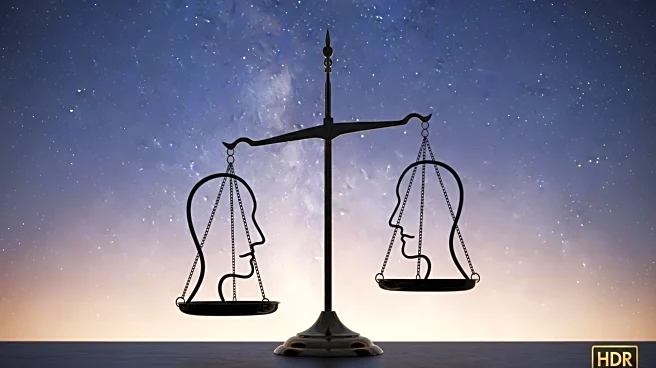What is the story about?
What's Happening?
A recent poll conducted by The Washington Post reveals significant divisions among American Jews regarding Israel's military actions in Gaza. The survey indicates that over half of American Jews believe Israel has committed war crimes, and four in ten consider its actions to amount to genocide. The poll also highlights a growing disapproval of Israeli Prime Minister Benjamin Netanyahu, with 68% of respondents rating his performance negatively. Despite these criticisms, a majority of U.S. Jews still view Israel as central to Jewish identity, with 76% affirming its importance to the Jewish future. The survey also shows a generational divide, with younger Jews more likely to criticize Israel's actions.
Why It's Important?
The findings of this poll underscore a potential shift in the historically strong ties between U.S. Jewry and Israel. The growing criticism among American Jews could influence U.S. political dynamics, particularly as senior Democrats increasingly voice opposition to Israel's military actions. This shift may impact U.S. foreign policy and military aid to Israel, as well as domestic political alignments. The poll also reflects broader societal debates about human rights and international law, as well as the role of the U.S. in global conflicts. The division within the Jewish community may also affect Jewish organizations and their advocacy efforts in the U.S.
What's Next?
The poll's results may prompt further discussions and debates within the Jewish community and among U.S. political leaders. As the divide grows, there could be increased pressure on U.S. lawmakers to reconsider military aid and diplomatic support for Israel. Additionally, the generational divide suggests that future Jewish leadership in the U.S. may adopt different stances on Israel, potentially leading to shifts in policy and advocacy. The ongoing conflict in Gaza and its humanitarian impact will likely continue to be a focal point for both domestic and international discourse.
Beyond the Headlines
The poll highlights deeper cultural and ethical questions about identity, loyalty, and the responsibilities of diaspora communities. The generational differences in attitudes towards Israel may reflect broader cultural shifts within the Jewish community, including changing views on nationalism, human rights, and global citizenship. These shifts could influence not only political and diplomatic relations but also cultural and religious practices within the Jewish community. The debate over Israel's actions in Gaza also raises questions about the role of media and public opinion in shaping international perceptions and policies.














